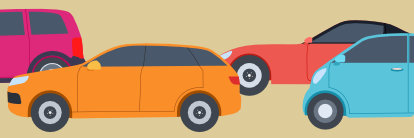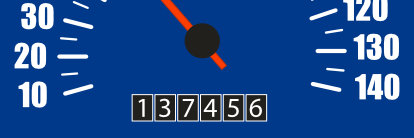Your car insurance price explained
The price we charge for insurance is based on how likely we think you are to make a claim, and how much we think that claim might cost.
Rating factors and market conditions
This depends on what we call ‘rating factors’. For instance, if you’ve had multiple car accidents before, you may be more likely to be in one again. This means your price could be higher than someone who’s never had a car accident.
Market conditions also make a big difference to the prices we charge. In recent years we've seen the price of labour, parts and second hand cars increase due to a range of factors, like inflation and cars getting more technologically advanced.
This means it's more expensive for us to repair or replace cars, which can increase the price of your insurance.
Fair pricing for our customers
We’re constantly looking at the prices we charge our customers to make sure our prices are accurate, fair and competitive.
Your age and driving experience
Your age is an important factor when it comes to your car insurance price.

Typically, younger drivers are a higher risk than older drivers, which means their insurance is more expensive.
On the other hand, car insurance for people over 60 may be more expensive as the likelihood of being in an accident is higher for that age range.
How long you’ve held your license can also impact your price, regardless of how old you are. Newer drivers are typically a higher risk than more experienced drivers.
Your accident, claims and motoring offence history
All insurers will ask for your claims history. We ask for claims or accidents from the past three years, and for motoring offences from the past five years.

We look at your accidents and/or claims, and if you still have your No Claim Bonus (NCB). We look at your accident and claims history, even if you weren't at fault. Drivers who have had accidents are seen as more of a risk than those who haven't.
Drivers with motoring offences on their licence are considered a bigger risk on the road than drivers who don’t have any.
The severity of an offence will also influence how much your price is impacted.
The type of car you drive
Insurers typically categorise your car’s risk based on a few things, including:
- model
- value
- age
- safety and security
- cost of damage repairs

Cars that include lots of tech can be more expensive to repair, so may increase the price – but on the other hand, certain safety features may reduce the price.
These rating factors differ between insurers that can use their own insurance groups and claims experience to get a price.
Your address
When we calculate your insurance price, we ask for your postcode and address to look at your neighbourhood.

We consider a few factors like the number of claims in your area, and whether those claims are due to theft, damage, or volume of traffic.
For instance, if there's a lot of claims for stolen cars in your area, your price may go up.
Also, if you live in a more affluent area, claims may cost more so this could increase your insurance price too.
Who drives your car
We look at the details of any additional named drivers, including their driving history, claims and motoring offences.

Depending on their circumstances, this can change the cost of your insurance.
If you have a named driver on your car who has a lot of previous claims for car accidents, it’s likely the price of your insurance will increase.
Mileage
The number of miles you drive every year has an impact on the price of your insurance.

If you spend a lot of time driving long distances, your price may be higher as the odds of you being in an accident are more than someone who doesn’t drive as far.
How you use your car can also affect your price. Drivers who use their car for business purposes often pay more, as they tend to take more frequent journeys and drive during busier times.
The cost of claims
When you buy insurance, you’re paying into a central pot alongside everyone else who’s bought insurance. If you make a claim, it’s paid out of that pot.

If the numbers and cost of claims increase, the money in the pot needs to be spread more widely. This means prices can go up.
We regularly monitor changes in claims costs and try to predict how they could change in the future, so we can adjust our prices when we need to.
Regulations and taxes
Regulatory and government changes have an impact on the price of everyone’s insurance. For instance, the Financial Conduct Authority (FCA) bought in new pricing regulations in 2022 which affected everyone’s price.

Insurance Premium Tax (IPT) is a government tax on car, home, van, travel and pet insurance policies, which is factored into the price of your insurance.
Car, van, home and pet insurance are subject to the standard rate of IPT at 12%, while travel insurance is subject to a higher rate of 20%.
Fraud
Insurance fraud can look like a few things, including things like crash for cash or fake whiplash claims.

Whatever it is, insurance fraud can drive up the cost of everyone’s prices across the country.
Your questions answered
I've had a claim. How will it affect my renewal price?
If we already know about the claim before we send you your renewal pack, your No Claims Bonus entitlement will have already been amended and the claim included within your renewal price.
If you make a claim and we've already sent your renewal pack, we’ll have to amend your No Claims Bonus entitlement and revise your price.
We’ll let you know what your new price is as soon as you tell us about the claim, and your renewal price will have taken the claim into account.
Will my price change at renewal?
Your renewal price changes every year.
At renewal, we re-calculate your price based on any changes in our rates related to the factors we’ve discussed above.
We always make sure we offer as competitive a price as we can.
We'll let you know your new price before your renewal, so you'll have the chance to shop around if you want.
What if my car or circumstances change?
Please make sure to tell us straight away about any changes to your circumstances, otherwise your policy could be invalid.
You can log in to MyAccount to make changes to your policy, and we'll tell you if you'll get a refund or need to pay more.
If you're not sure whether you need to tell us about a change, you should call us and check.
How do I make a change to my policy from renewal?
Just log in to MyAccount.